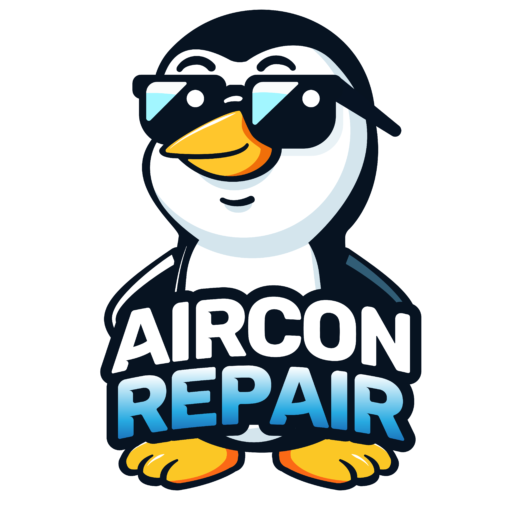If your AC unit is running but no water is coming out, it could be a sign of an underlying issue. Normally, air conditioners remove humidity from the air, which results in water draining from the system. However, if you’re not seeing any condensation, your unit may not be cooling efficiently, or there could be a blockage in the drain line. In hot climates like Las Vegas, where ACs work extra hard, this issue can affect your comfort and energy bills. Understanding the possible causes and solutions can help you avoid costly repairs and keep your home cool and comfortable.
How Your AC System Produces Water
Before diving into potential issues, it’s important to understand why your air conditioner produces water in the first place. As your AC cools the air, it also removes humidity. This moisture collects on the evaporator coil and then drains through a pipe (the condensate drain line) outside your home. If no water is coming out, something may be preventing this process from working properly. In this guide, we’ll break down the possible causes of this AC problem, the risks involved, and what steps you can take to fix it.
Common Causes of No Water Coming From Your AC
1. Low Humidity Levels
- Cause: If you live in a dry climate or it’s the cooler season, there may not be enough moisture in the air for condensation to form.
- Risk Level: Low. This is normal and typically not a cause for concern.
- Solution: No action is needed unless you notice other AC issues, such as weak airflow or inconsistent cooling.
2. Clogged Condensate Drain Line
- Cause: Dirt, algae, mold, or debris can build up in the drain line, preventing water from flowing out.
- Risk Level: Moderate to High. If left unaddressed, a clog can cause water to back up into your home, leading to water damage and mold growth.
- Solution: Use a wet/dry vacuum to clear the clog or flush the line with a vinegar and water solution. If the clog persists, professional maintenance may be required.
3. Frozen Evaporator Coil
- Cause: A dirty air filter, restricted airflow, or low refrigerant levels can cause the evaporator coil to freeze. Once it melts, water may not drain properly.
- Risk Level: High. A frozen coil can cause significant damage to your AC system and increase repair costs.
- Solution: Check for ice buildup. Turn off the AC to allow the coil to thaw, replace dirty filters, and ensure all vents are open. If the problem persists, contact an HVAC technician to inspect refrigerant levels.
4. Malfunctioning Condensate Pump
- Cause: If your AC uses a pump to remove water, a malfunction could prevent drainage.
- Risk Level: Moderate. This can lead to water overflow or electrical issues.
- Solution: Check the power supply to the pump and ensure it’s working. If not, a professional technician may need to repair or replace it.
5. Inefficient or Overcharged AC Unit
- Cause: If your AC isn’t cooling efficiently, it may not be able to remove enough moisture from the air. Overcharging the system with refrigerant can also disrupt the condensation process.
- Risk Level: Moderate to High. An inefficient system can lead to increased energy costs and strain on the unit.
- Solution: Regular maintenance, including refrigerant checks and system inspections, can prevent this issue.
Additional Signs Your AC May Need Repair
If you notice any of the following alongside the lack of water drainage, it’s best to schedule a professional AC service:
- Warm Air Coming From Vents: Your AC isn’t cooling properly.
- Unusual Noises: Hissing, buzzing, or clicking sounds may indicate mechanical problems.
- Water Leaks Indoors: A clogged or broken drain line can cause indoor water damage.
- Frequent Cycling: The AC turns on and off more often than usual, signaling inefficiency.
How to Prevent AC Drainage Issues
Regular maintenance is key to avoiding AC problems and ensuring your unit runs efficiently. Here are some preventive measures:
- Change Air Filters Regularly: A dirty filter restricts airflow, leading to frozen coils and drainage issues.
- Clean the Condensate Drain Line: Flush it with vinegar every few months to prevent clogs.
- Schedule Annual AC Maintenance: Professional inspections help catch potential problems early.
- Ensure Proper Airflow: Keep vents and registers clear of obstructions.
When to Call an AC Technician
If your AC unit is running but no water is coming out despite troubleshooting, it’s time to call a professional. An HVAC technician can:
- Inspect and clean the drain line
- Check for refrigerant leaks or airflow restrictions
- Diagnose and repair any electrical or mechanical faults
- Ensure your AC is operating at peak efficiency
Conclusion
In conclusion, while it may seem like a minor issue if your AC unit is running but no water is coming out, it’s important to understand the potential causes and risks involved. From low humidity levels to more serious issues like a clogged drain line or frozen evaporator coil, addressing these problems early can prevent costly repairs and ensure your unit runs efficiently. Regular maintenance, such as cleaning filters, flushing the condensate drain line, and scheduling professional inspections, will help avoid drainage issues and keep your AC functioning smoothly. If the problem persists, don’t hesitate to call a technician to avoid further damage and maintain optimal comfort in your home.
